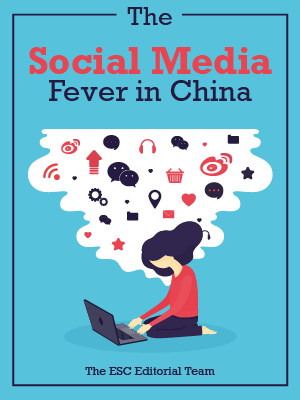Ecommercestrategychina.com uses cookies and other technologies to provide you a better browsing experience. You can get more information regarding the use of cookies, or decline it whenever by clicking Privacy Policy. By using this site or clicking “Okay”, you give us the consent to the use of cookies.
OKAY
Mini Programs - applications that can run on the main app’s interface without download and installation– have been a buzzword in China over the past two years and were widely adopted by the Chinese tech giants, Baidu, Alibaba, and Tencent, (collectively known as BAT), as well as the rising ByteDance that operates TikTok. Will more Internet companies penetrate this area next year and pose threats to the incumbent?
WeChat took the lead in 2017 with a head start; Baidu and Alibaba have since been in hot pursuit. ByteDance also joined the race but did not yet start a large-scale promotion. The trio has invested huge sums of money to facilitate business: Alipay set up Mini Program business unit and is planning to spend RMB1 billion over the next three years to help developers and distributors to develop relevant services; Baidu and Tencent have shelled out the same capital to speed up the construction of stable platforms that can host multiple services. The distinct “genes” of the three Internet kingdoms will be mirrored in the characteristics of their Mini Programs. Let’s take a closer look at the differences in the initiatives of the BATs in the Mini Program.
WeChat: Sharing is the key
The WeChat Mini Program was launched with a significant traffic advantage as WeChat is already China’s largest social network and has gained over 1 billion users worldwide. It is therefore not surprising that the WeChat Mini Program outperforms its competitors in terms of metrics. Official statistics show that the WeChat Mini Prgram so far covers more than 200 sub-sectors and has a value of over RMB500 billion with a total of 100 billion visits. However, the competition for traffic in the WeChat ecosystem is booming – an overwhelming share of the revenue flows to big players with monthly active users in excess of 5 million, and few others are able to take a share of the spoils.
According to Tencent’s report on the user behaviour of the Mini Program, most people like sharing simple games(42%), and then applets providing life services(39%) followed by online shopping platforms(28%) and websites for content and news(28%). For the various accesses to the Mini Program, the shortcut on the top of WeChat’s main page comes first with 44%. A shared link on Moments (40%) is of secondary importance in referrals. Only 27% use the entry in the search bar.
Businesses expect a fast start through WeChat’s established network but may receive a mediocre result in retaining users. As an online social circle, WeChat has been a place for intensive sharing. That means anything triggers social interaction can easily gain considerable exposure in the WeChat environment. The Mini Program is no exception.
However, the social vitality does not last long and can lead to the loss of loyal users in the long-term, particularly those shopping Mini Programs that depend on substantial discount coupons as an initial push. As soon as the financial supports ends, consumers go to the competitors who pursue a low-price strategy. The essence of WeChat Mini Pragram is “Exit After Use”, as said by Allen Zhang, WeChat founder, so this may disappoint many enterprises hoping to dig deep into this new tool and retain users for more benefits. Their current solution is to transfer the users from the Mini Program back to their full apps, by providing attractive benefits or integrated features.
Alipay: Exploring the possibilities of offline services
The Alipay Mini Program was a later-comer and less competitive in driving traffic. Unlike WeChat Mini Programs with their diverse offerings, Alipay puts little effort into entertainment derivatives such as mobile games, where Tencent performs better, or shopping and life services, which are being fed by Alibaba’s family of Taobao, Tmall, Eleme and Fliggy, etc. Yet, that left Alipay not far behind WeChat: it has reached 170 million daily active users and even reached a peak of 280 million during the traditional Chinese New Year. With a range of payment, life services, insurance, money management and more usage scenarios, Alipay has built dominance in the digital financial life of Chinese people.
The possibilities for the Alipay Mini Program are in the offline area. Along with mobile payments, which are in high demand in the transportation, hospitality and retail sectors, Alipay offers features for small and medium-sized entities that do not have the capability to develop a standalone app to seamlessly bring online and offline experience together, such as the online credit assessment and the small-credit loan. Mini Programs for sharing power banks and bikes are early examples of what would appear in Alipay’s layout. However, operations with little or no relevance to finance and payment may not adapt well to the Alipay ecosystem.
Baidu: User experience is the priority
Compared to the first two, Baidu’s Mini Program has an explicit goal – helping people solve everyday problems – and that is exactly what the Baidu search engine is for. Baidu has gone deep into social life, the entertainment and information industry with its so-called Smart Mini Program. But in terms of the number of Mini Programs and monthly active users, it is far lower than WeChat and Alipay.
To offset the disadvantage, Baidu has partnered with 12 companies, including iQiyi, Bilibili, Kuaishou, Ctrip, etc., which focus on the video streaming, travel, short video and life services business. The search behaviour of the users can naturally lead them into the Mini Programs of Baidu. However, it is still considered to be the most vulnerable in the competition for Mini Programs, because of the lack of traffic, a complete account, payment and credit system, as well as the challenges from Wireless Application Protocol (WAP) websites. Imagine when users search for keywords like “Ctrip” and the results appear for both the company’s homepage and for the Mini Program. Why would they choose the latter one?
For Baidu to compete with WAP websites and WeChat and Alipay, the key is to provide a better user-centric experience. The accumulation of AI technology and big data, in addition to sufficient news feed operations can also translate into an outstanding ability to personalise content and differentiate its offerings.
In the future, the connection between users and the offline environment will be more complex and frequent while it is unlikely that there will be a super app that allows users to meet all their online and offline needs. Because of their expertise, BAT will continue to use the Mini Programs to tap into different life scenarios and bring real convenience to different demographics.
Please Login to add comments.

$9.99 $19.98

$9.99 $19.98